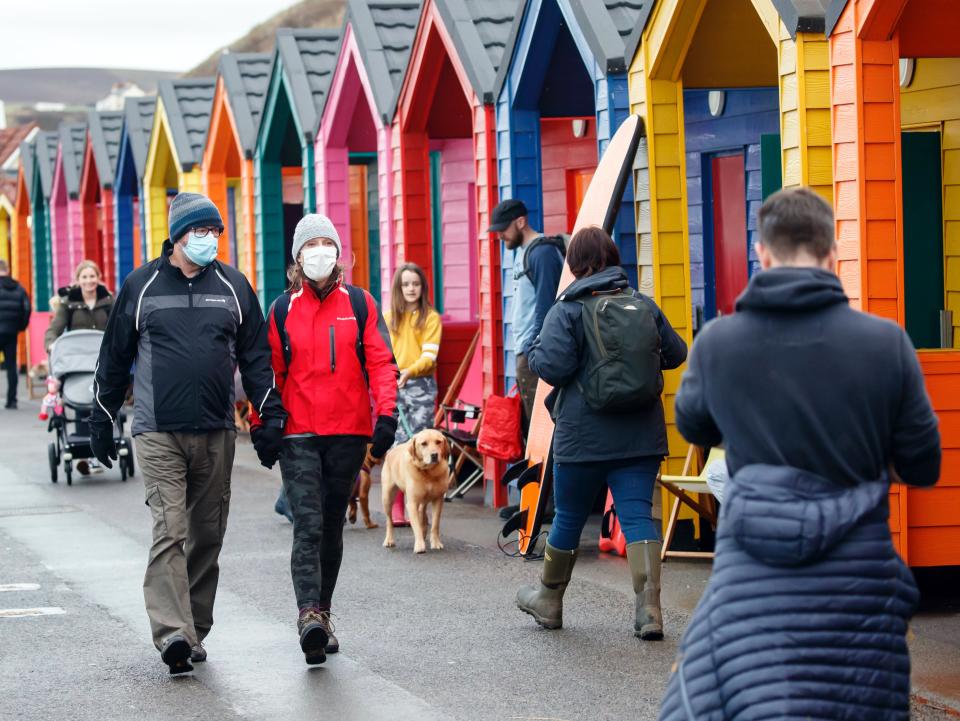Coronavirus second wave ‘running riot’ as NHS hospitals face being ‘overwhelmed’, scientists warn

The second wave of coronavirus is “running riot” across all age groups, a member of the government’s Scientific Advisory Group for Emergencies (Sage), has warned, as Boris Johnson considers imposing strict new national lockdown restrictions within days.
“For the naysayers that don't believe in a second wave, there is a second wave,” Professor Calum Semple told BBC Radio 4's Today programme.
"And unlike the first wave, where we had a national lockdown which protected huge swathes of society, this outbreak is now running riot across all age groups."
He also said there were "many more cases particularly in younger females between the ages of 20 and 40".
Prof Semple said there were three to four times as many women in the age group coming into hospital as men, because they are exposed in hospitality, retail and some educational settings.
Meanwhile, Professor Anthony Gordon, a critical care expert at Imperial College London, warned the NHS will not be able to provide the best care for coronavirus patients if it becomes “overwhelmed”.
"We have to stop the spread of the virus because if we don't we will overwhelm the health service and none of us want that," he told Today.
It comes as the prime minister is considering imposing new national lockdown restrictions next week after scientists warned half a million people were being infected with coronavirus each week.
Mr Johnson is expected to announce the measures for England - which could be introduced on Wednesday and last until 1 December - at a press conference on Monday, according to The Times.
The paper said everything except essential shops and schools could be closed under the new measures, but no final decisions are believed to have been made.
Mr Johnson has so far resisted calls from scientists and Labour to introduce a “circuit-breaker” to curb Covid-19 cases, but he is facing mounting pressure after new data showed the extent of cases across England.
Cases “continued to rise steeply” in the week ending 23 October, the Office for National Statistics (ONS) said, with an estimated 568,100 people becoming infected.
The government’s scientific advisers now believe it is too late for a two-week national circuit-breaker to have enough of an impact and they argue a longer national lockdown is needed to drive the virus’s reproduction number, or R value, below one.
Meanwhile, an official document released by the government showed a Sage meeting on 8 October said the number of infections and hospital admissions is "exceeding the reasonable worst case scenario planning levels at this time".
The document, released days before the three tier restrictions were announced, said the number of deaths was also "highly likely to exceed reasonable worst case planning levels" within the next two weeks.
Professor Jeremy Farrar, an infectious diseases expert and Sage member, said on Friday evening that to bring coronavirus under control "we have to act now".
He tweeted: "The best time to act was a month ago but these are very tough decisions which we would all like to avoid. The second-best time is now.
"The sooner we get on top of the disease, reduce transmission, R1, the sooner we can get our society back to normal and the economy back on track."
France and Germany announced national lockdown restrictions earlier this week, while in Northern Ireland pubs and restaurants were closed for four weeks starting on 16 October with the exception of takeaways and deliveries. Schools were closed for two weeks.
Wales is currently under a "firebreak" lockdown with leisure, hospitality and tourism businesses closed, and in Scotland the majority of people will be under level 3 of a new five-tier system from Monday.
Read more

